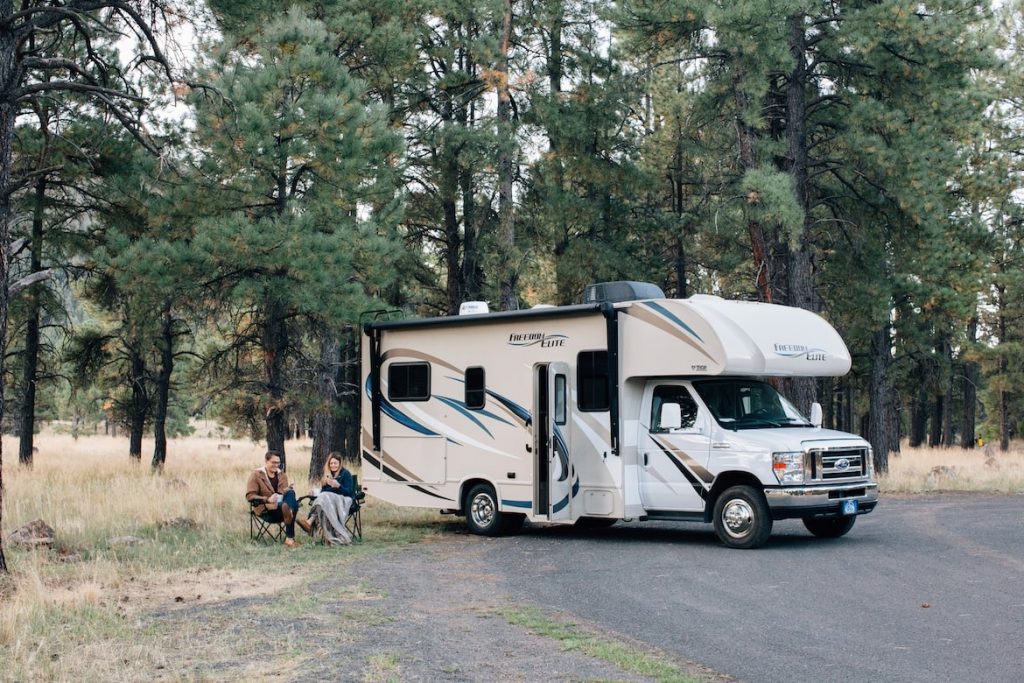Are you in the market for a used RV? Whether you’re a seasoned traveler or embarking on your first RV adventure, purchasing a pre-owned recreational vehicle can be an exciting and cost-effective option. However, it’s crucial to carefully consider the process to ensure you make a wise investment that aligns with your needs and preferences. In this article, we’ll discuss some of the top things you need to look out for when purchasing a used RV.
From mechanical inspections to interior conditions, we’ll cover the essential factors to help you make an informed decision and find the perfect used RV for your next journey.
Why Buy a Used RV?

Purchasing an RV offers many benefits, making it a worthwhile investment. Driving an RV gives you the freedom to travel on your own terms, enabling you to explore new destinations and embark on exciting road trips. An RV offers the convenience of a home away from home, complete with all the amenities, making your travel experiences comfortable and convenient. This is especially valuable if you’re traveling with small kids or as a family.
Traveling by RV travel can also be more cost-effective than traditional forms of travel, as you can save on accommodation and dining expenses by bringing your accommodation and kitchen with you. The flexibility and spontaneity that come with RV ownership allow you to adapt your plans and discover hidden gems along the way.
Mechanical Condition
Before finalizing a purchase, it’s crucial to ensure a qualified RV technician conducts a thorough mechanical inspection. They have the expertise to assess various components and systems of the vehicle. This inspection should cover the following:
- Engine: They should evaluate the engine’s performance, check for leaks, and inspect the belts, hoses, and fluid levels. They should also run diagnostics to identify any potential issues.
- Transmission: They should inspect the transmission for smooth shifting and any signs of abnormal noises or vibrations.
- Electrical system: They should examine the RV’s electrical system, including the battery, wiring, and fuses, and ensure all electrical components, such as lights, appliances, and systems, function properly.
- Plumbing: They should inspect the plumbing system for leaks, proper water flow, and functionality of faucets, toilets, showers, and water heaters and check the water pump and holding tanks.
- Heating, ventilation, and air-conditioning systems: They should inspect the heating, ventilation, and air-conditioning systems for proper operation, airflow, and potential issues.
- Brakes and suspension: They should inspect the brakes, including pads, rotors, and brake lines, to ensure they’re in good condition and check the suspension system for any signs of wear or damage.
- Tires and wheels: They should assess the condition of the tires, including tread depth and tire pressure, and inspect the wheels for any signs of damage or misalignment.
- Exhaust system: They should examine the exhaust system for leaks, rust, or any abnormalities affecting performance or safety.
- Structural integrity: They should inspect the RV’s overall structural integrity, including the frame and body, for any signs of damage or corrosion.
Maintenance and Service Records
Be sure to get information about the RV’s history and the number of previous owners. If possible, research the vehicle’s usage, such as the trips it has been on and if it has experienced any accidents or major repairs. It’s also crucial to ask for maintenance and service records from the previous owner or dealership. These records provide valuable insights into the history of the RV’s maintenance and can help you assess its overall condition and reliability.
Service records can reveal any major repairs or replacements on the RV. The recorded mileage in service records can also help you verify the accuracy of the RV’s odometer reading. It’s important to ensure that the mileage matches the condition and age of the RV, as discrepancies could indicate potential issues or tampering. Service records may include warranty information, indicating if any warranties remain active on the RV. Having comprehensive maintenance records can positively impact the future resale value of the RV.
Exterior Condition
While we recommend asking a professional to inspect the structure of the RV, it’s key to do your own due diligence. The exterior condition can give you valuable insights into the overall care and maintenance of the RV. You should inspect the RV’s body for any signs of damage, such as dents, scratches, or rust, and examine the roof and check the condition of the seals around vents, skylights, and roof edges. You should also inspect all windows, doors, and awnings for signs of wear and ensure they function as they should.
Inspect the propane tank and utility connections (such as electrical and water hookups) for proper functionality and secure fittings, and check for any leaks or signs of damage. You should also test all exterior lights and signals, including headlights, taillights, brake lights, and turn signals, and examine the wheels, tires, hitch, and bumper. Make sure that the hitch is properly rated for the RV’s towing capacity.
Interior Condition
Step inside the RV and carefully inspect the interior. Look for signs of water damage, mold, or mildew, as these can be indicators of leaks or poor ventilation, and check the condition of appliances, upholstery, flooring, appliances, plumbing, doors, windows, electric outlets, mattresses, and cabinets. Take note of any repairs or renovations that may be necessary to bring the interior up to your desired standards.
Layout and Amenities
Consider the layout and amenities of the RV to ensure it meets your specific needs, and evaluate the sleeping arrangements for you and your family. Consider the kitchen facilities, bathroom amenities, storage space, and overall livability of the vehicle. Determine if the layout is suitable for your travel style.
Budget and Financing
Establish a clear budget for your used RV purchase and factor in additional costs, such as insurance, registration fees, and maintenance expenses. If you require financing, you can explore different options and compare interest rates and terms to secure the best deal that fits your financial situation. Purchasing a used RV can open up a world of possibilities.
Reputation and Reviews
Research the brand and model of the RV to learn about its reputation and reliability. Be sure to read reviews from other RV owners to gain insights into common issues or concerns.
Test Drive
When purchasing a used RV, we highly recommend taking it for a test drive before making a final decision. This allows you to experience firsthand how the RV performs and feels on the road. Pay attention to the RV’s acceleration, braking, and steering response. Note any unusual noises, vibrations, or difficulties in maneuvering.
If possible, consider driving the RV on various road types, including highways, urban streets, and winding roads, to understand its performance. Remember, a test drive allows you to assess not only the RV’s mechanical condition but also your personal comfort and confidence in driving the vehicle.
Looking For Your Dream Pre-Owned RV?
It’s essential to perform a comprehensive inspection before purchasing a used RV. This can help you identify any potential issues and provide you with an accurate assessment of the overall condition of the RV. Identifying any potential issues early on can save you from expensive repairs down the road. If you’re concerned, buying an RV from a trusted dealership can give you peace of mind. Chat with our team of experts or drop into one of our locations throughout Upstate New York to test-drive an RV today.


